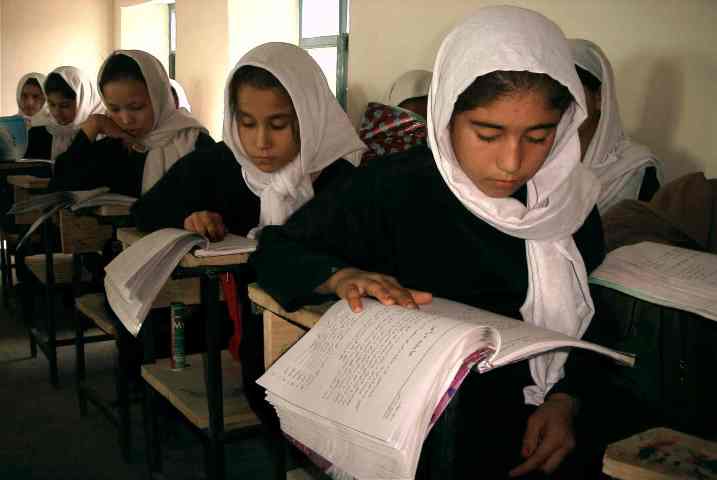UNICEF Urges Afghanistan to End School Ban on Girls After Four Years of Exclusion
UNICEF described the school ban as “one of the defining injustices of our time” — a decision with catastrophic consequences not only for individuals but also for the country’s long-term stability and development.

Four years have now passed since adolescent girls in Afghanistan were banned from attending school beyond grade six. By the end of 2025, more than 2.2 million girls will have been excluded from education — one of the gravest and most protracted education crises in the world, according to UNICEF.
A Growing Crisis Amid Mass Returns
The situation has been further aggravated in 2025 by the return of over 2 million Afghans from neighboring countries, swelling the number of school-aged children, including girls, who cannot access education. This unprecedented movement of people adds pressure on already strained schools, humanitarian services, and communities.
Earthquake Highlights Need for Educated Women
The devastating earthquake in Afghanistan earlier this year, which killed at least 1,172 children, underscored the urgent need for skilled female professionals in healthcare and social services. In a society where strict gender segregation often prevents male workers from reaching women and children, female doctors, midwives, and aid workers are indispensable.
Yet, as UNICEF stresses, these professions cannot be sustained if girls are not educated today. Without access to secondary and tertiary education, Afghanistan risks losing entire generations of women from critical fields.
A Defining Injustice
While millions of children worldwide returned to classrooms this September, Afghan girls remain confined to their homes. UNICEF described the school ban as “one of the defining injustices of our time” — a decision with catastrophic consequences not only for individuals but also for the country’s long-term stability and development.
“No nation can thrive when half its population is left behind,” the agency said. “If Afghanistan is to move forward, it needs the full participation of both men and women to drive a resilient workforce, strengthen the economy, and meet the needs of its people.”
Social and Psychological Toll
The harm goes far beyond academics. Denied the chance to study, Afghan girls are also stripped of:
-
Social contact with peers.
-
Personal growth and self-confidence.
-
Opportunities to shape their futures.
UNICEF field staff report alarming trends among girls confined to their homes:
-
Rising levels of depression and anxiety.
-
Early and forced marriages, often used as coping mechanisms by impoverished families.
-
Higher birth rates among adolescent girls, with severe health risks for mothers and infants.
“These outcomes are entirely avoidable,” UNICEF warned, calling for urgent policy change.
A Threat to Stability and Progress
The ban not only violates girls’ right to education but also poses a profound threat to Afghanistan’s stability. With half its population excluded from schools and the workforce, the country faces a shrinking pool of skilled professionals, reduced economic productivity, and weakened social resilience.
International experts have pointed out that nations investing in girls’ education experience faster economic growth, lower child mortality, and stronger democratic institutions. Afghanistan, by contrast, risks being locked in cycles of poverty and instability.
Global Solidarity and a Call to Action
UNICEF reiterated its call on Afghanistan’s de facto authorities to immediately lift the ban and ensure access to education for every girl — from primary school to university.
“Afghanistan’s girls are not just losing lessons,” the agency said. “They are losing their futures.”
The organization also appealed to the international community to keep the plight of Afghan girls high on the global agenda, to fund education initiatives, and to support Afghan civil society actors fighting for gender equality.
Looking Ahead
Unless reversed, the school ban will have generational consequences. The absence of educated women in health, education, and social services will leave Afghan society dangerously underprepared for future crises.
UNICEF warned that time is running out: every academic year lost deepens inequality and prolongs suffering. Reopening classrooms for girls is not only a human rights imperative but also the surest path toward a more stable, resilient, and prosperous Afghanistan.
ALSO READ
UN Report: Corruption in South Sudan Fuels Human Rights Crisis and Collapse of Services
Government corruption fuels human rights crisis in South Sudan, independent panel finds
Pashtun Activist Exposes Alleged Human Rights Abuses in Pakistan
Pak: Human Rights Commission calls for immediate protection of transgender persons in Swabi amid expulsion threats
UPDATE 1-UN Human Rights Council to hold urgent debate on Israeli airstrike on Qatar










